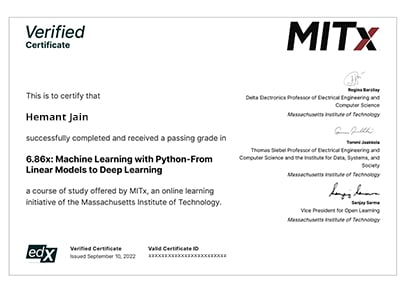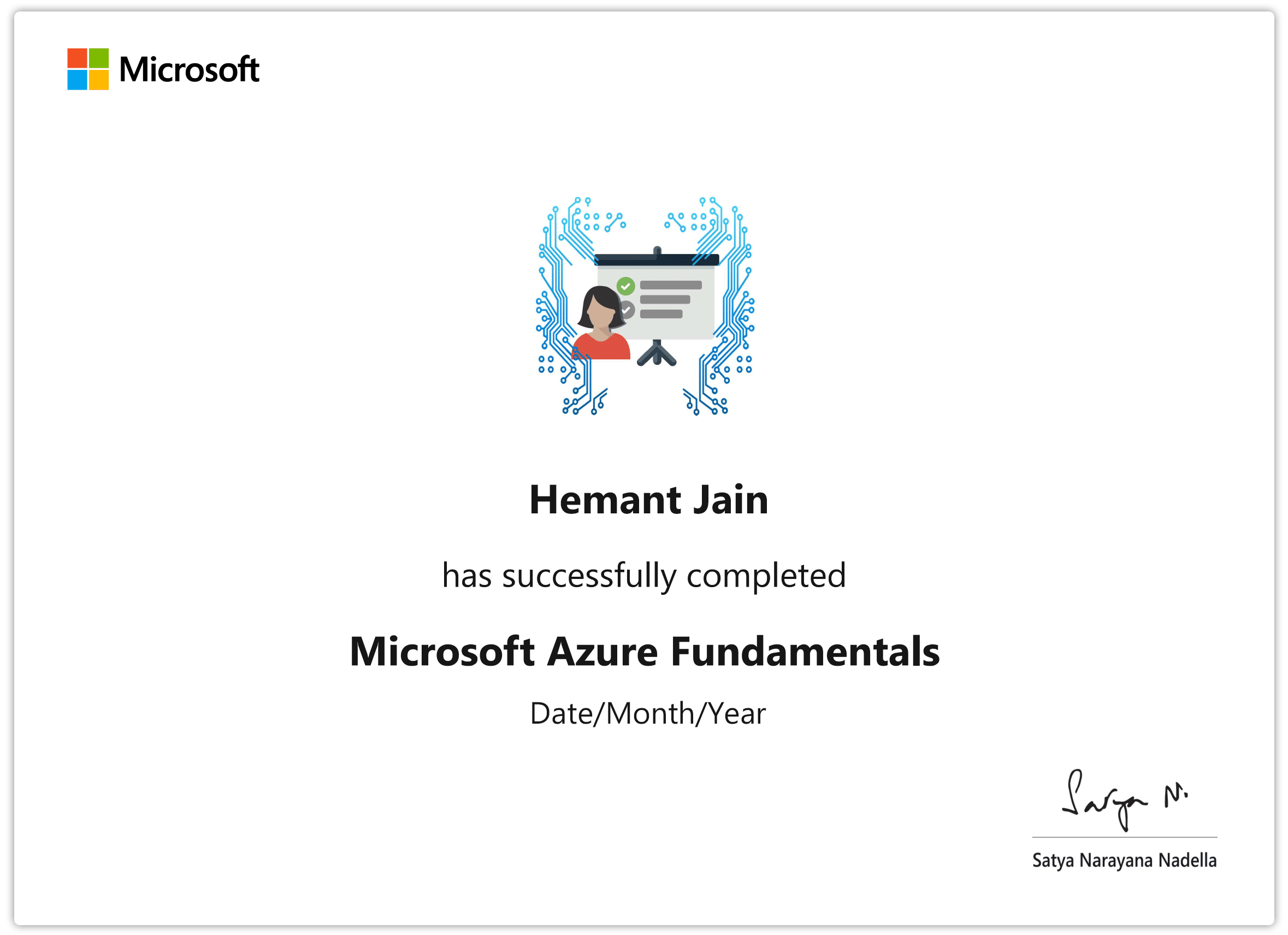Your cart is currently empty.






Fuel your career in data science and machine learning. Get 100% job interviews guaranteed with our data science and machine learning course.

Watch
Course PreviewLearning Format
Online Bootcamp
Live Classes
8 Months
100%
Job Opportunities Guaranteed*
MITx
Certification
EMI Starts
at ₹4000/month*
This PG program in Data Science has been designed by industry experts to help you land your dream jobs. You will learn through live classes from experts and e-learning videos of MIT faculty.
About MIT and MIT IDSS
The Institute for Data, Systems, and Society (IDSS) is a cross-disciplinary unit made up of faculty from across the Massachusetts Institute of Technology (MIT). IDSS advances education and research in data analysis, statistics, and machine learning, and applies these tools in collaboration with social scientists, community, and policymakers to address complex societal challenges.Read More..
Upon completion of this Data Science and Machine Learning Course, you will:
To know more about the MIT IDSS, click here
Program in Collaboration with Microsoft
Benefits for students from Microsoft:
55% Average Salary Hike
45 LPA Highest Salary
12000+ Career Transitions
300+ Hiring Partners
*Past record is no guarantee of future job prospects
With the help of several machine learning tools and technologies, they build statistical models with large chunks of business data.
They understand the issues and create models based on the data gathered and manage a team of data scientists.
They design and build machine learning models to derive intelligence for the services and products offered by the organization.
They build strategies on frameworks and technologies to develop AI solutions and help the organization prosper.
They create and manage pluggable service-based frameworks that are customized to import, cleanse, transform, and validate data.
They extract data from the respective sources to perform business analysis and generate reports, dashboards, and metrics to monitor the organization’s performance.
Artificial Intelligence Basics
Neural Networks
Deep Learning
Projects in data science and machine learning will be a part of your certification to consolidate your learning and ensure that you have real-world industry experience.
Practice 20+ Essential Tools
Designed by Industry Experts
Get Real-world Experience

Admission Details
The application process consists of three simple steps. An offer of admission will be made to selected candidates based on the feedback from the interview panel. The selected candidates will be notified over email and phone, and they can block their seats through the payment of the admission fee.
Submit Application
Tell us a bit about yourself and why you want to join this program
Application Review
An admission panel will shortlist candidates based on their application
Admission
Selected candidates will be notified within 3 days
Total Admission Fee
Learners can opt for MITx Certification Vouchers by paying additional 30000 INR
EMI Starts at
We partnered with financing companies to provide very competitive finance options at 0% interest rate
Financing Partners
![]()
Admissions close once the required number of students is enrolled for the upcoming cohort. Apply early to secure your seat.
| Date | Time | Batch Type | |
|---|---|---|---|
| Program Induction | 12th July 2025 | 08:00 PM - 11:00 PM IST | Weekend (Sat-Sun) |
| Regular Classes | 12th July 2025 | 10:00 AM - 01:00 PM IST | Weekend (Sat-Sun) |
Other Cohorts
| Date | Time | Batch Type | |
|---|---|---|---|
| Program Induction | 15th July 2025 | 07:00 AM - 09:00 AM IST | Weekday (Tue-Fri) |
On completion of the Data Science and Machine Learning Course with mandatory projects, assignments, and quizzes, you will receive industry-recognized certification from Intellipaat. Upon completion of the MITx course for Machine Learning with Python – From Linear Models to Deep Learning you will receive a certificate from MIT.
Yes, you need to pay an additional amount of Rs. 30,000/-
Intellipaat provides career services that include Placement assistance for all the learners enrolled in the PG program on Data Science and Machine Learning Course. MIT is not responsible for placements and career services.
This Post Graduate Program in Data Science and Machine Learning is led by the experts at MIT and industry experts to help you gain mastery over this domain through various skills, tools, and industry-based projects. You will gain in-depth knowledge and hands-on experience.
After completing the Data Science and Machine Learning course and successfully executing the assignments and projects, you will receive your certification, which will qualify you for top-paying jobs around the world. Furthermore, our career services team will prepare you for future job interviews by conducting mock interviews, preparing your resume, and more.
To be eligible for this program, you will need to meet the following criteria:
Note: If you are in your final year of college, then you will be required to submit all mark sheets & certificates earned till the last semester (with at least 60% up to your last semester) and proof from your college that mentions the month and year of your graduation.
If you fail to attend any of the live lectures, you will get a copy of the recorded session in the LMS and you can reach out to our support team for any doubt clearance. Our support team is available to help you 24*7.
The following is expected from the candidates during the job opportunities guarantee period:
Note: Failure to comply with any of the above will result in the job opportunities guarantee clause being terminated for the candidate.
The trainers of this Data Science and Machine Learning course are top industry experts with tremendous knowledge in the field. You will get to learn from the video lessons by the leading faculty from MIT.
No, Anyone who is passionate about learning Data Science and Machine Learning is welcome to join our program
Classes are during the weekends i.e. Saturdays and Sundays. Committing 15 hours a week is good enough to grasp and crack the interviews. You will be expected to allocate some time for your assessments and projects as well. You will undergo multiple contests and hackathons as part of the training program.
You can always reach out to our support team. Additionally, you will be allocated with Intellipaat’s dedicated teaching assistants who will resolve all your queries and doubts apart from your instructors.
Yes. You will be able to talk to professionals who work at top companies.
The duration of this online Data Science and Machine Learning placement opportunities guarantee program is 8 months.
Our placement assistance team will help you prepare well with mock interview rounds. If you have completed all the assignments and projects by the end of the course, you will not have to worry about tech interviews.
You will be awarded an industry-recognized certification after the completion of the program.
This program is only for those who are looking forward to working professionally after the course.
At the time of enrollment, you will be provided with information related to your instructors, teaching assistants, and the support team. You can contact them whenever in need.
If you already having an offer with any company, please share this information with the course advisor team, and we will update you on what best we can do to help you in your career growth.
Yes. This placement opportunities guarantee program is only for Indian citizens for now, and you should have a work permit to work in India.
The student should have some basic knowledge of programming and have decent communication skills. Besides, knowledge of Python or any OOP language will be preferred even if you don’t have any technical skills knowledge we provide free boot camp classes to our learners and you can learn programming in those sessions
This program is designed for working professionals with 0-3 years of experience. You can also sign up for this PG program on Data Science and Machine Learning if you are in the final year of your bachelor’s or post-graduate program.
You can expect a salary range of Rs.7-8 lakhs from the job offer. However, it depends on how you perform in your interview. We have seen our learners securing a package of up to 30 LPA.
Once you receive your certification, you will be eligible to avail services under the Job Opportunities Guarantee clause. To receive your certification, you will have to :
This a Job Opportunities Guarantee program and hence we only allow the candidates where we feel that we can help them to grow professionally in their career and we expect the candidates to be 100% committed to it. There is no refund applicable to this course.
We value the candidates who wish to learn but do not have the financial bandwidth to make an upfront payment of the fees. Hence, Intellipaat offers an easy No-cost EMI option to the candidates.
The dates for the cohort for the MITx course will be announced by the MITx and the students will be provided only one of the courses. Students will be asked to enroll in the respective course whose cohort date is nearest to the time of completion of the course delivery. To get the certificate from MITx the student has to complete the quiz successfully and they will be issued a certificate by MITx.
All the students who have enrolled for the Job Opportunities Guarantee program and completed the course along with passing the Placement Readiness Test, are eligible to avail the career services offered by Intellipaat. The career services are provided to the students for 8 months.
Due to any reason you want to defer the batch or restart the classes in a new batch then you need to send the batch defer request on [email protected] and only 1 time batch defer request is allowed without any additional cost.
Learners can request a batch deferral to any of the cohorts starting in the next 3-6 months from the start date of the initial batch in which the student was originally enrolled. Batch deferral requests are accepted only once but you should not have completed more than 20% of the program. If you want to defer the batch 2nd time then you need to pay batch defer fees which are equal to 10% of the total course fees paid for the program + Taxes.
Yes, Intellipaat certification is highly recognized in the industry. Our alumni work in more than 10,000 corporations and startups, which is a testament that our programs are industry-aligned and well-recognized. Additionally, the Intellipaat program is in partnership with the National Skill Development Corporation (NSDC), which further validates its credibility. Learners will get an NSDC certificate along with Intellipaat certificate for the programs they enroll in.
What is included in this course?
 Click to Zoom
Click to Zoom
 Click to Zoom
Click to Zoom




